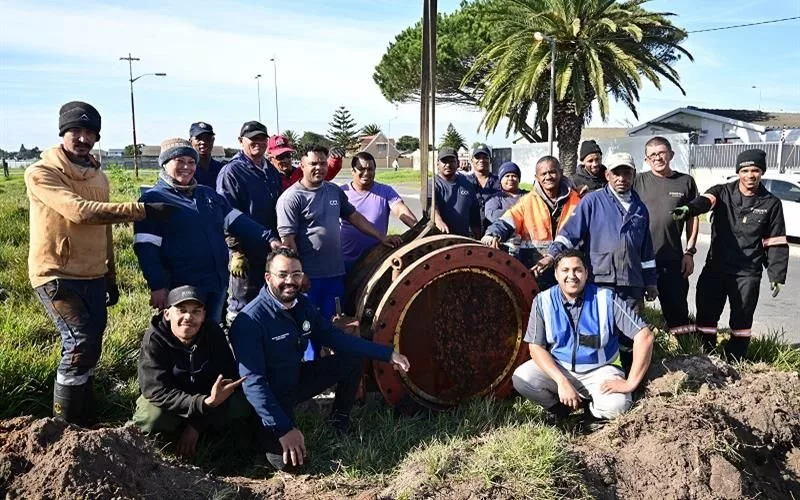Period poverty is a major issue affecting over 80% of South African schoolgirls, who lack access to sanitary products and proper menstrual hygiene education. The I_Menstruate Movement is campaigning for free menstrual hygiene products to combat this problem. The recent Exesheni Exhibition in Franschhoek shed light on the severity of the situation, with photographs of makeshift solutions like rags, cardboard, and toilet paper. The I_Menstruate Movement plans to lobby President Cyril Ramaphosa for change and spread awareness in rural communities.
What is period poverty in South Africa?
Period poverty in South Africa refers to the lack of access to sanitary products, menstrual hygiene education, toilets, handwashing facilities, and proper waste disposal. Over 80% of South African schoolgirls are affected by this conflict, according to research by the I_Menstruate Movement. Many learners resort to makeshift solutions like rags, cardboard, toilet paper, and socks during menstruation. The I_Menstruate Movement is campaigning for menstrual hygiene products to be provided free of charge to combat period poverty.
In the serene town of Franschhoek, South Africa, a recent exhibition named ‘Exesheni’ brought to light a silent war raging across the country. The exhibition focused on ‘period poverty,’ a term referring to a lack of access to sanitary products, menstrual hygiene education, toilets, handwashing facilities, and proper waste disposal. According to research undertaken by the I_Menstruate Movement, this conflict affects over 80% of South African schoolgirls.
The I_Menstruate Movement, a grassroots organization at the forefront of this battle, recently released a report titled ‘Bleeding in Silence: Barriers to menstrual hygiene among school girls in South Africa.’ This report serves as a poignant reminder of the daily struggle of countless young women. The comprehensive study included 540 students from two high schools in each of the nine provinces in South Africa.
Stories of Struggle: Unfolding Generations of Menstruation
The driving force behind this ambitious initiative is Tracey Malawana, the founder of the I_Menstruate Movement. At the Exesheni Exhibition, translated in English as ‘that time of the month,’ Malawana recounted tales of menstruation spanning three generations while exploring the evolution of menstrual hygiene products. A significant photograph of Malawana’s grandmother utilizing ‘leaves and cloths’ during her menstrual cycle underscored the severity of the situation.
The exhibition also employed a visual narrative to demonstrate the current predicament. Displayed were photographs of blood-soaked sanitary pads, toilet paper, and school uniforms with red stains, symbolizing the ongoing struggle for those lacking access to proper sanitary products. The survey showed that learners often resort to makeshift solutions like rags, cardboard, toilet paper, and socks during menstruation.
A particularly moving testimonial came from Comfort Mokopanele, a student from Tshireleco High School in Kimberley. As an exhibiting artist, she shared, “Many of us do not have access to or money for sanitary pads, so we resort to using these substitutes when we menstruate.”
The Fight Forward: The I_Menstruate Movement’s Campaign
These powerful testimonies have spurred the I_Menstruate Movement to escalate their campaign. The organization plans to lobby President Cyril Ramaphosa to provide some menstrual hygiene products free of charge. As Malawana emphasized, “The cost of living is high, and menstrual products are expensive. Parents are often compelled to choose between buying bread and sanitary pads.”
However, the Exesheni Exhibition is not merely a static display but an ongoing crusade. Its journey extends to Johannesburg in August, aligning with Women’s Month. By October, the mission will reach several rural communities, spreading awareness and advocating for changes. The fight against period poverty is gaining momentum, with the I_Menstruate Movement at the forefront, serving as a beacon of hope for innumerable South African girls navigating the challenging landscape of adolescence amidst poverty and deprivation.
What is the I_Menstruate Movement?
The I_Menstruate Movement is a grassroots organization dedicated to combating period poverty in South Africa. Founded by Tracey Malawana, the organization advocates for free menstrual hygiene products and proper menstrual hygiene education.
What is the Bleeding in Silence report?
The Bleeding in Silence report is a comprehensive study conducted by the I_Menstruate Movement that sheds light on the daily struggle of South African schoolgirls who lack access to menstrual hygiene products. The study included 540 students from two high schools in each of the nine provinces in South Africa.
What is the Exesheni Exhibition?
The Exesheni Exhibition is an art exhibit in Franschhoek that highlights the severity of period poverty in South Africa. The exhibit includes photographs of makeshift solutions like rags, cardboard, and toilet paper, as well as personal stories of those affected by period poverty.
What is the I_Menstruate Movement’s campaign?
The I_Menstruate Movement’s campaign is focused on lobbying President Cyril Ramaphosa to provide free menstrual hygiene products to combat period poverty. The organization also aims to spread awareness and advocate for changes in rural communities.
How does period poverty affect South African schoolgirls?
Over 80% of South African schoolgirls lack access to sanitary products and proper menstrual hygiene education, leading to the use of makeshift solutions like rags, cardboard, and toilet paper during menstruation. This can lead to embarrassment, discomfort, and missed school days.
How can I help combat period poverty in South Africa?
There are several ways to help combat period poverty in South Africa, such as donating menstrual hygiene products or funds to organizations like the I_Menstruate Movement. You can also spread awareness and advocate for change in your local community.












